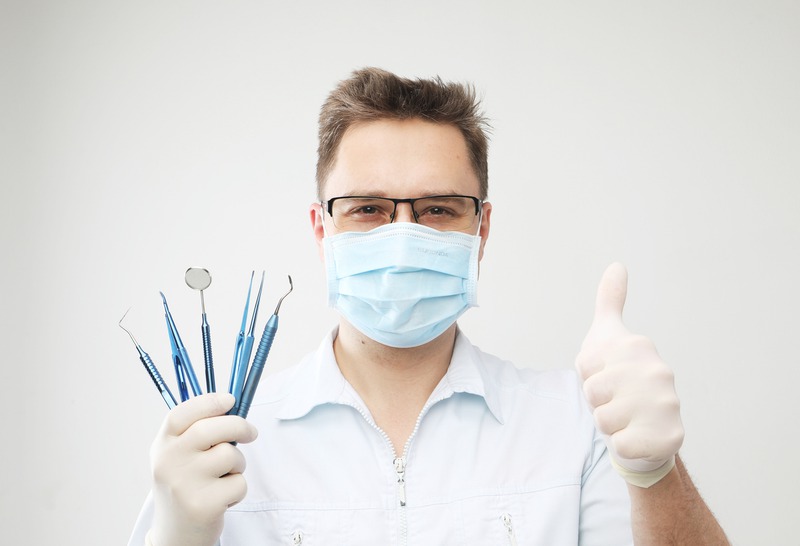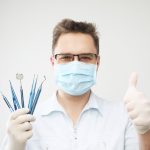
Dental emergencies can sneak up on you, often causing discomfort and stress. Whether it’s severe pain, a broken tooth, or another pressing issue, it’s crucial to have a plan in place for accessing urgent dental care. Ensuring that you’re prepared for such unexpected situations can provide peace of mind and quicker relief. Let’s walk through the steps you should take to handle a dental emergency with ease.
Recognize a Dental Emergency
First and foremost, it’s important to identify whether your situation qualifies as a dental emergency. Here are some common signs:
-
Severe toothache or nerve pain
-
Cracked, broken, or knocked-out tooth
-
Bleeding or swollen gums
-
Infection or abscess in the mouth
-
Loose teeth not associated with loss of baby teeth
If you’re experiencing one or more of these symptoms, it’s time to seek urgent dental care.
Stay Calm and Assess the Situation
Panic doesn’t help in emergencies, so it’s essential to stay calm. Take a few moments to assess your condition and gather any necessary information to relay to the dentist. Note down the specific symptoms and the duration you’ve been experiencing them. This will help the dental professional make a quick and accurate diagnosis.
Temporary At-Home Relief
Before you can reach the dentist, there are some temporary measures you can take to alleviate symptoms:
-
For pain: Take over-the-counter pain relievers following the recommended dosage.
-
For bleeding: Use a clean piece of gauze to apply gentle pressure.
-
For swelling: Apply a cold compress to reduce inflammation and numb the area.
-
For loose teeth: Avoid eating hard foods and try not to wiggle the tooth.
Remember, these are temporary solutions. It’s important to consult with a dentist as soon as possible.
Finding an Emergency Dentist Quickly
With the urgency that dental emergencies demand, time is of the essence. Here’s how you can find an emergency dentist swiftly:
-
Contact your regular dentist: They may offer emergency services or can refer you to a specialist.
-
Use online resources: Websites and apps can help locate nearby dental professionals.
-
Ask friends or family: They may have recommendations based on personal experiences.
Having a list of local dentists who can handle dental emergencies can be a lifesaver. Update this list regularly and keep it accessible.
Understanding Your Insurance Policy
In emergencies, the last thing you want to worry about is insurance coverage. Familiarize yourself with what your dental insurance covers in terms of emergency care. Contact your insurance provider to clarify any doubts and learn about preferred providers. This knowledge can save you time and stress when you’re in dire need of care.
Preparing for the Unexpected
Preparation is essential. Here’s how you can be ready even before an emergency arises:
-
Keep your insurance card and dental records easily accessible.
-
Maintain a first-aid kit with dental-specific supplies like gauze and pain relievers.
-
Have a list of emergency contacts, including local dentists and your insurance provider.
Having these resources at your fingertips can mitigate panic and facilitate a more organized response when under pressure.
What to Expect During an Emergency Dental Visit
Knowing what happens during an emergency dental visit can ease anxiety. Typically, you’ll undergo a quick but thorough examination, which may include X-rays to determine the root of the problem. The dentist will then discuss your condition with you, suggesting the best course of action to relieve pain and address the issue effectively.
Post-Treatment Care
After emergency treatment, it’s important to follow the dentist’s advice for aftercare. This may include taking prescribed medications, practicing optimal oral hygiene, and attending follow-up appointments if necessary. Ensure you understand and follow these instructions to support a full recovery and prevent further complications.
How to Prevent Future Dental Emergencies
While some emergencies are unavoidable, many can be prevented through good oral hygiene and regular dental check-ups. Here are some preventive measures:
-
Brush and floss daily to maintain healthy teeth and gums.
-
Visit your dentist regularly for check-ups and cleanings.
-
Avoid chewing hard objects or ice, as they can lead to chipped or cracked teeth.
-
Use a mouthguard when engaging in sports or activities that risk dental injury.
Building a Relationship with Your Dentist
Having a reliable dentist for routine care means you have an emergency option when needed. Regular visits help build trust, allowing you to feel more comfortable reaching out during emergencies. Additionally, your dentist will have a comprehensive understanding of your dental history, which aids in quicker, more effective emergency treatment.
The Role of Local Dental Clinics
Local dental clinics play a significant role in providing accessible emergency care. Many clinics prioritize emergency cases and have flexible hours, including weekends and late evenings. If you’re in an area like Bloor West, searching online for cosmetic dental services in Bloor West could direct you to clinics that handle both routine and urgent dental needs with expertise and compassion.
Resources for Finding an Emergency Dentist
Living in a bustling city with a plethora of options can be both a blessing and a challenge when searching for emergency care. Utilize local directories, online reviews, and community forums to locate a Toronto emergency dentist who meets your needs. Being proactive in your search can alleviate the stress of finding help during a crisis.
Benefits of Local Dental Professionals
Choosing a dentist close to home or work ensures quicker access during emergencies. Local professionals are familiar with regional health concerns and can offer personalized care. A quick online search for dentists on Bloor can provide a list of accessible dentists in that area, ensuring you’re covered whether you’re facing an immediate issue or looking for ongoing care.
Final Thoughts
Dealing with a dental emergency can be unsettling, but being prepared and informed can make all the difference. By recognizing when to seek urgent care, knowing how to find the right dental professional, and following preventive measures, you can manage dental emergencies effectively. Prioritize oral health through regular check-ups and build a rapport with your dentist for peace of mind, knowing you’re covered when emergencies arise.




